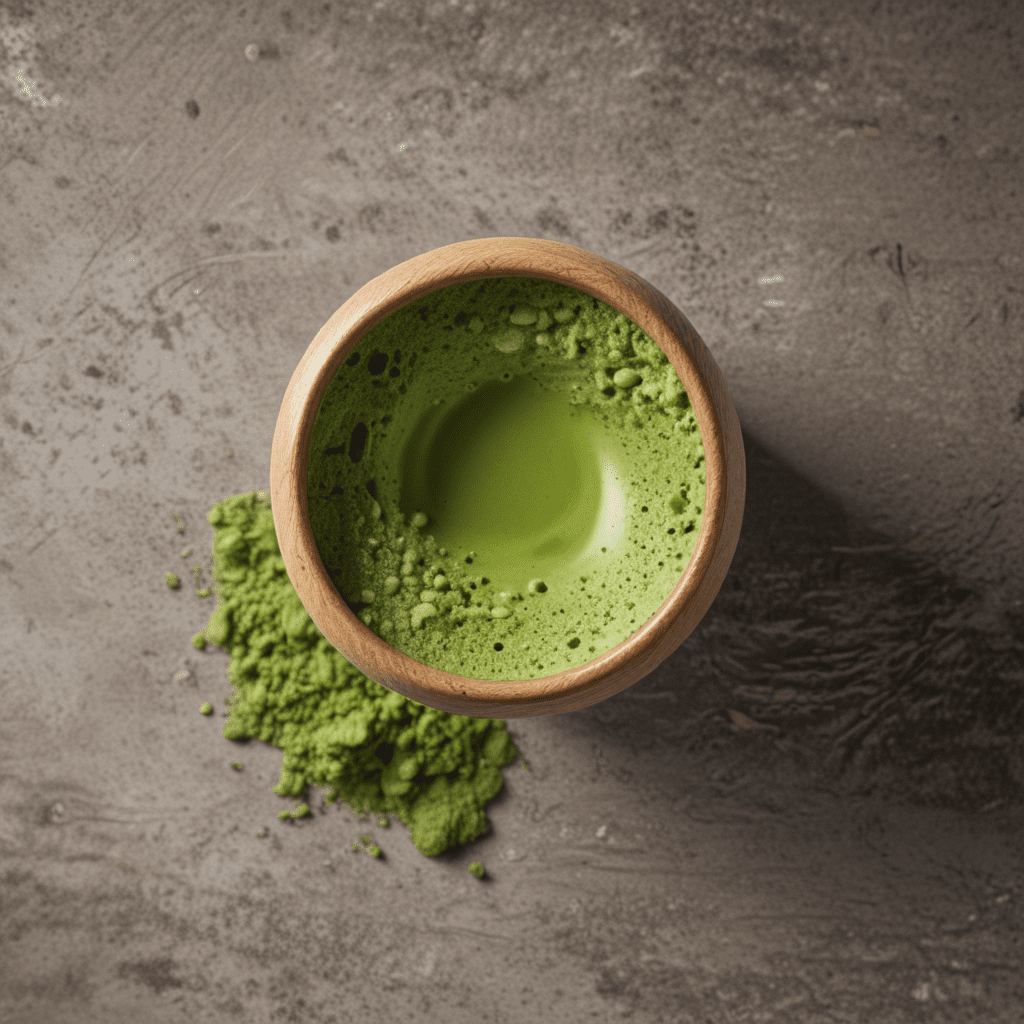
1. Introduction: Exploring Matcha's Impact on Metabolism
Matcha is a finely ground green tea powder that has been revered for centuries as a health elixir. It is made from specially cultivated tea leaves that are grown in the shade and then harvested, steamed, dried, and ground into a fine powder. Matcha is gaining popularity as a weight loss supplement due to its potential to boost metabolism and promote fat burning. This article will explore the scientific evidence behind how matcha can enhance your metabolism and support your weight management goals.
2. Understanding Metabolism and Its Importance
Metabolism refers to the biochemical processes that occur in your body to convert food into energy. It involves two main processes: catabolism, the breakdown of complex molecules into simpler ones, and anabolism, the synthesis of new molecules from simpler ones. A healthy metabolism is crucial for maintaining a healthy weight, providing energy for daily activities, and optimizing overall health.
3. Matcha: An Ancient Superfood with Metabolic Benefits
Matcha is an excellent source of antioxidants and nutrients, including catechins, chlorophyll, and L-theanine. Studies have shown that these compounds work synergistically to enhance metabolism and support weight loss. Matcha contains a high concentration of catechins, particularly epigallocatechin gallate (EGCG), which has been found to have thermogenic effects and increase calorie expenditure.
4. Active Constituents in Matcha and Their Metabolic Role
Matcha's metabolic benefits are primarily attributed to the presence of certain active constituents. Catechins, especially EGCG, are powerful antioxidants that have been shown to boost metabolism. They work by increasing the activity of norepinephrine, a hormone that plays a role in regulating metabolism and fat breakdown. Additionally, the caffeine in matcha may also contribute to increased energy expenditure and calorie burning.
5. Matcha's Thermogenic Effects and Increased Calorie Expenditure
One of the key ways matcha boosts metabolism is through its thermogenic effects. Thermogenesis refers to the process of generating heat in the body, which requires energy. When you consume matcha, the catechins and caffeine work together to increase thermogenesis, leading to an increase in calorie expenditure. This means that your body burns more calories, even while at rest, which can contribute to weight loss and fat burning over time.
6. Improved Lipid Metabolism and Reduced Cholesterol
Matcha can also positively impact lipid metabolism, which is the process of breaking down and utilizing fats in the body. Studies have shown that regular matcha consumption can help reduce levels of total cholesterol and LDL (bad) cholesterol while increasing HDL (good) cholesterol levels. This improved lipid profile can lower the risk of heart disease and other related health conditions.
7. Regulation of Blood Sugar and Insulin Sensitivity
Matcha may play a role in regulating blood sugar levels and improving insulin sensitivity. Catechins in matcha have been found to inhibit the absorption of glucose from the intestines, resulting in lower blood sugar levels after meals. Additionally, matcha may improve insulin sensitivity, which allows cells to more effectively use glucose for energy. This can help prevent insulin resistance and reduce the risk of developing type 2 diabetes.
8. Role in Gut Health and Digestion
Emerging research suggests that matcha may have beneficial effects on gut health and digestion. The polyphenols in matcha have antioxidant and anti-inflammatory properties that may help protect the delicate lining of the digestive tract. Additionally, matcha may promote a healthy gut microbiome, which is essential for optimal nutrient absorption and overall health.
9. Practical Applications of Matcha for Enhanced Metabolism
To reap the metabolic benefits of matcha, it is important to incorporate it into your daily routine. Matcha can be enjoyed in various ways, including as a tea, added to smoothies, or used in cooking and baking. It is recommended to consume 1-2 cups of matcha per day to experience its metabolic effects.
10. Conclusion: Matcha as a Natural Metabolite Booster
In conclusion, matcha is an ancient superfood that has been shown to have numerous health benefits, including boosting metabolism, promoting weight loss, and improving overall well-being. Its rich profile of antioxidants and nutrients, particularly catechins and EGCG, contribute to its metabolic effects. Incorporating matcha into your diet can provide a natural and effective way to enhance your metabolism and support your health goals.
Frequently Asked Questions
Q: How much matcha should I consume daily for its metabolic benefits?
A: It is recommended to consume 1-2 cups of matcha per day to experience its metabolic effects.
Q: Can I add matcha to other foods and beverages?
A: Yes, matcha is a versatile ingredient that can be added to smoothies, tea lattes, baking recipes, and more.
Q: Does matcha contain caffeine?
A: Yes, matcha does contain caffeine, but in a smaller amount compared to coffee. The caffeine in matcha works synergistically with catechins to enhance metabolism.
Q: Are there any side effects associated with consuming matcha?
A: Matcha is generally safe for consumption, but some people may experience mild side effects such as stomach upset or jitteriness if consumed in excess. It is advisable to consult a healthcare professional before consuming large amounts of matcha, especially if you have underlying health conditions.

